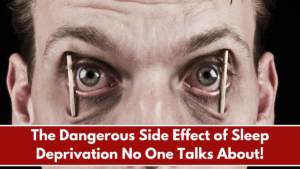For years, the idea of “calories in vs. calories out” has dominated the world of weight loss. We’ve been told that to lose weight, we simply need to eat fewer calories than we burn. However, what if this advice is actually making you gain weight instead of losing it?
Many people drastically reduce their calorie intake, expecting quick results. But instead of shedding pounds, they hit a weight loss plateau, feel exhausted, and sometimes even gain weight. If this sounds familiar, you’re not alone. The truth is, cutting too many calories can trigger biological responses that actually work against you.
In this article, we’ll explore why extreme calorie restriction can lead to weight gain, how the body reacts to low-calorie diets, and what you should be doing instead for sustainable weight loss.
The Science Behind Calories and Weight Loss
Calories are a unit of energy that the body uses for all functions, from breathing to running. When you eat fewer calories than your body needs, it starts burning stored fat for energy, leading to weight loss. However, the body is a complex machine, and simply eating less doesn’t always lead to sustained fat loss.
When calorie intake drops too low, your body enters survival mode, slowing metabolism and holding onto fat stores as a protective measure. Understanding how your body reacts to calorie restriction is key to losing weight effectively.
Why Cutting Calories Can Make You Gain Weight
1. Your Metabolism Slows Down
When you significantly reduce calorie intake, your body perceives it as starvation and adapts by slowing metabolism. This means you burn fewer calories at rest and during daily activities.
A slowed metabolism can cause weight loss to stall or even reverse. Studies show that people who follow very low-calorie diets often experience a long-term metabolic slowdown, making it harder to maintain weight loss.
2. Your Body Holds Onto Fat
The human body is designed for survival. When it senses a severe calorie deficit, it prioritizes storing fat instead of burning it. This is because fat is a long-term energy source, while muscle tissue is easier for the body to break down for quick energy.
Instead of losing fat, many people on extreme diets lose muscle mass, which further slows metabolism. The less muscle you have, the fewer calories you burn, making weight loss even harder.
3. You Experience Intense Hunger and Cravings
When you cut calories too much, your body increases the production of hunger hormones like ghrelin while decreasing satiety hormones like leptin. This makes you feel hungrier, weaker, and more likely to crave high-calorie foods.
- Increased cravings for sugary and fatty foods lead to overeating.
- Binge-eating cycles become common, where people restrict food all day and then overeat at night.
- The body fights to restore lost weight, which is why most crash diets fail in the long run.
4. Nutrient Deficiencies Lead to Weight Retention
Cutting calories often means cutting out nutrient-dense foods. When the body lacks essential vitamins and minerals, it can lead to:
- Hormonal imbalances, affecting metabolism and fat storage.
- Slower digestion, causing bloating and weight gain.
- Lower energy levels, reducing your ability to exercise and burn calories.
Instead of focusing only on calorie reduction, it’s more effective to eat nutrient-dense whole foods that keep metabolism running efficiently.
5. Stress Hormones Increase Fat Storage
Severe calorie restriction is a form of stress on the body, triggering an increase in cortisol levels. High cortisol is linked to:
- Increased belly fat storage
- Higher cravings for unhealthy foods
- Slower metabolism
This is why people who are constantly dieting often gain weight around the midsection, even if they are eating less.
6. You Burn Fewer Calories Through Movement
When you drastically cut calories, your body compensates by reducing spontaneous movement. This means:
- You move less throughout the day without realizing it.
- Your body conserves energy, making workouts feel harder.
- You burn fewer calories overall, making weight loss difficult.
Instead of cutting calories drastically, eating the right foods can help you maintain energy levels and an active lifestyle.
The Right Way to Lose Weight Without Damaging Your Metabolism
1. Eat More Nutrient-Dense Foods
Instead of focusing on calorie quantity, shift your focus to calorie quality. Whole, nutrient-dense foods like lean proteins, healthy fats, and fiber-rich carbohydrates support metabolism and promote fat loss without deprivation.
Best foods for sustainable weight loss:
- Protein: Chicken, fish, eggs, tofu, and legumes.
- Healthy Fats: Avocados, nuts, seeds, olive oil.
- High-Fiber Carbs: Vegetables, quinoa, brown rice, sweet potatoes.
2. Focus on Protein and Strength Training
Eating enough protein helps preserve muscle mass, which keeps your metabolism high. Strength training is equally important—it prevents muscle loss and ensures your body burns more calories even at rest.
- Aim for 0.6–1 gram of protein per pound of body weight.
- Include strength training exercises at least 3–4 times a week.
3. Stop Starving Yourself – Eat Enough to Fuel Your Body
A moderate calorie deficit (300–500 calories per day) is far more effective than extreme dieting. Eating too little leads to long-term weight gain, not weight loss.
A good rule of thumb: If you’re constantly tired, irritable, or craving junk food, you’re probably cutting too many calories.
4. Practice Mindful Eating
Instead of counting calories obsessively, focus on:
- Eating when you’re hungry and stopping when you’re full.
- Avoiding distractions like TV or phone while eating.
- Choosing foods that nourish your body instead of depriving it.
5. Get Enough Sleep and Manage Stress
Lack of sleep and high stress levels contribute to weight gain and cravings. Aim for:
- 7–9 hours of sleep per night.
- Stress-reducing activities like meditation, yoga, or nature walks.
When the body is well-rested and stress levels are low, it naturally regulates hunger hormones and improves metabolism.
The idea that cutting calories automatically leads to weight loss is a myth that often backfires. Instead of helping you lose weight, severe calorie restriction slows metabolism, increases fat storage, and triggers cravings that lead to overeating.
The key to sustainable weight loss isn’t just eating less—it’s eating smarter. A balanced diet rich in protein, healthy fats, and fiber, combined with strength training and mindful eating, is the best way to lose weight without damaging your metabolism.
If you’ve been struggling with weight loss despite eating less, it’s time to shift your focus from calorie restriction to proper nutrition. Your body will thank you!
FAQ’s:
1. Why does eating too few calories slow down metabolism?
When you drastically cut calories, your body senses an energy shortage and enters survival mode. This is an evolutionary response designed to protect you from starvation. Your body slows down its metabolism, meaning it burns fewer calories at rest and during activity.
Additionally, your body starts prioritizing energy efficiency by reducing non-essential functions. You may experience fatigue, hair loss, or hormonal imbalances, all of which are signs that your metabolism is slowing down. Instead of extreme calorie restriction, a moderate calorie deficit of 300-500 calories per day is more effective for long-term weight loss.
2. Can cutting calories cause weight gain?
Yes, extreme calorie restriction can actually lead to weight gain over time. When you eat too few calories, your body clings to fat stores and starts burning muscle for energy. This loss of muscle slows down metabolism, making it harder to burn calories efficiently.
Additionally, prolonged calorie restriction can increase cravings and lead to binge-eating episodes. Many people overcompensate for their low-calorie diets by eating more than usual when hunger becomes unbearable. This creates a yo-yo dieting effect, where weight fluctuates up and down, often leading to long-term weight gain.
3. How does calorie restriction affect hunger hormones?
Your body has two main hunger-regulating hormones: ghrelin (the hunger hormone) and leptin (the fullness hormone). When you cut calories too drastically:
- Ghrelin levels rise, making you feel hungrier and leading to intense cravings.
- Leptin levels drop, which means you feel less full, even after eating.
This hormonal imbalance can lead to overeating and increased fat storage, which is why extreme diets often fail. A balanced, nutrient-dense diet helps regulate these hormones and prevents uncontrollable hunger cycles.
4. What role does muscle loss play in weight gain?
Muscle plays a huge role in maintaining a fast metabolism. The more muscle you have, the more calories you burn, even at rest. When you cut calories too much, your body starts breaking down muscle for energy instead of fat.
Losing muscle means:
- Your metabolism slows down, making it harder to lose weight.
- You burn fewer calories throughout the day.
- Fat storage increases, especially in the belly area.
To prevent muscle loss, it’s important to eat enough protein and engage in strength training while trying to lose weight.
5. Why do people feel tired and weak on low-calorie diets?
Food is your body’s fuel, and calories provide energy. When you don’t eat enough, your body lacks the nutrients it needs to function properly, leading to:
- Fatigue and weakness
- Brain fog and difficulty concentrating
- Dizziness and headaches
A diet too low in calories deprives your muscles, brain, and organs of essential nutrients. Instead of going too low, focus on eating balanced meals with healthy proteins, fats, and complex carbohydrates to sustain energy levels.
6. Can cutting calories lead to binge eating?
Yes, one of the biggest risks of extreme calorie restriction is binge eating. When you don’t eat enough, your body increases hunger signals and cravings, making it harder to resist high-calorie foods.
People on very low-calorie diets often experience:
- Nighttime binge-eating – where they eat excessively after starving all day.
- Loss of control around food, leading to overeating.
- An unhealthy relationship with food, causing guilt and stress.
Instead of extreme dieting, a moderate, sustainable calorie deficit helps prevent binge eating and supports long-term weight loss.
7. How does stress affect weight gain during calorie restriction?
Cutting calories too much stresses the body, leading to an increase in cortisol, the stress hormone. High cortisol levels have been linked to:
- Increased fat storage, particularly around the belly.
- Cravings for sugary and fatty foods.
- A sluggish metabolism, making it harder to burn calories.
Stress also affects sleep quality, which can further disrupt metabolism and hunger hormones. Instead of extreme calorie restriction, focus on stress management, adequate sleep, and a well-balanced diet for healthier weight loss.
8. Why do people gain weight after stopping a low-calorie diet?
Many people lose weight initially on a low-calorie diet, but as soon as they go back to normal eating, the weight comes back quickly. This happens because:
- Metabolism slows down during calorie restriction, so when normal eating resumes, the body stores more fat.
- Muscle mass decreases, reducing the number of calories burned daily.
- Hunger hormones remain imbalanced, leading to increased appetite and cravings.
This cycle is called “yo-yo dieting” and is common in people who try extreme calorie restriction. The best way to prevent weight regain is to lose weight gradually, maintain muscle mass, and develop long-term healthy eating habits.
9. What is the best way to lose weight without harming metabolism?
To lose weight effectively and sustainably, focus on nutrition, not just calorie counting. Here are some key tips:
- Aim for a moderate calorie deficit of 300-500 calories per day instead of extreme cuts.
- Eat protein-rich foods (chicken, fish, eggs, tofu) to maintain muscle and boost metabolism.
- Include healthy fats (avocados, nuts, olive oil) to regulate hunger and hormones.
- Prioritize fiber (vegetables, whole grains, legumes) to keep digestion healthy and hunger in check.
- Incorporate strength training 3-4 times per week to preserve muscle mass.
- Get enough sleep and manage stress, since these factors also affect weight loss.
By following these steps, you’ll avoid starvation mode and support healthy, long-term fat loss.
10. Are all calories the same when it comes to weight loss?
No! While traditional dieting focuses on calorie counting, research shows that the quality of calories matters more than the quantity.
For example, 100 calories from soda vs. 100 calories from chicken affect your body very differently:
- Soda (sugar-based calories) spikes blood sugar, increases fat storage, and leaves you hungrier.
- Chicken (protein-based calories) helps build muscle, keeps you full, and boosts metabolism.
Instead of just eating less, focus on eating high-quality, whole foods that support metabolism and fat loss.



